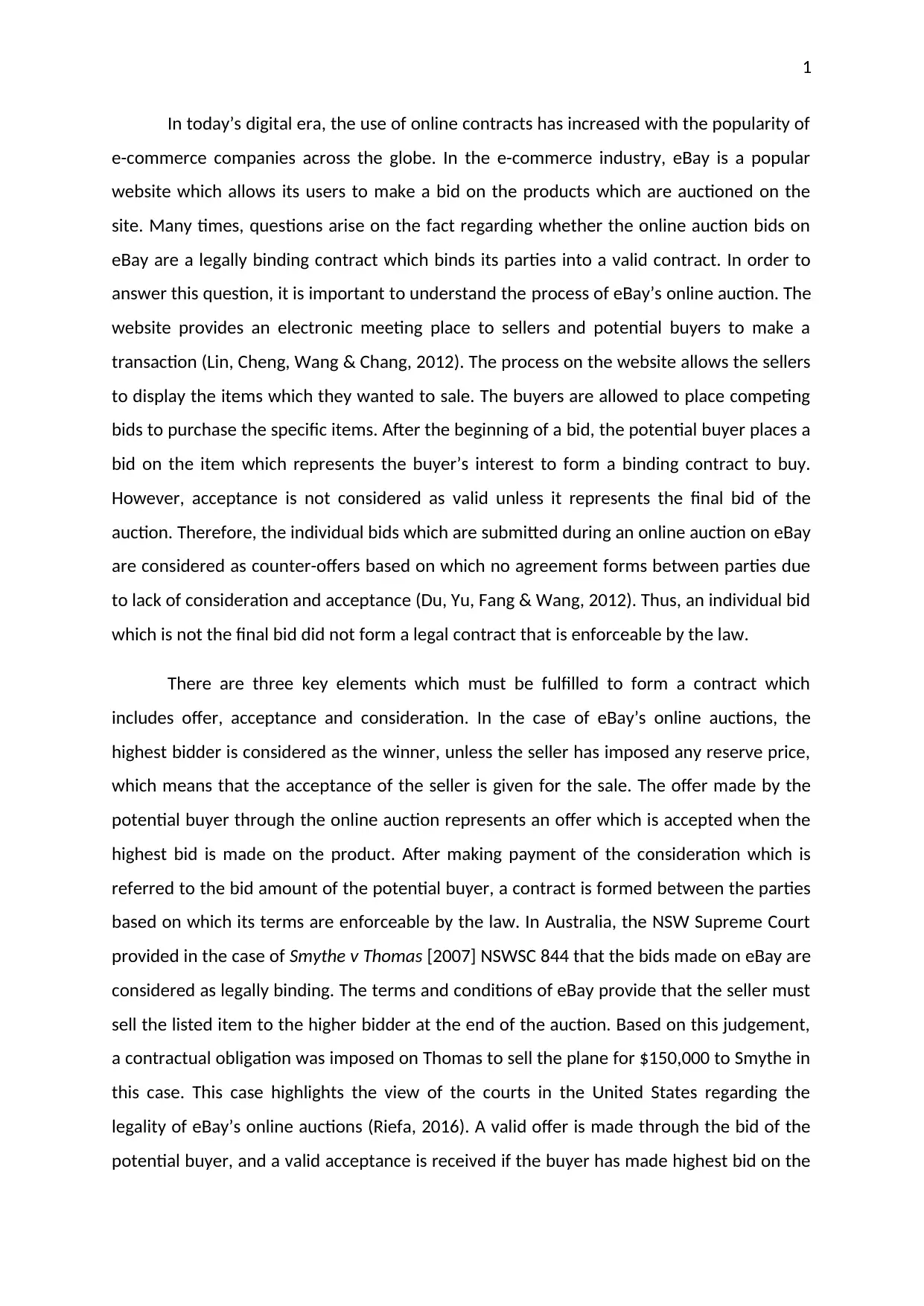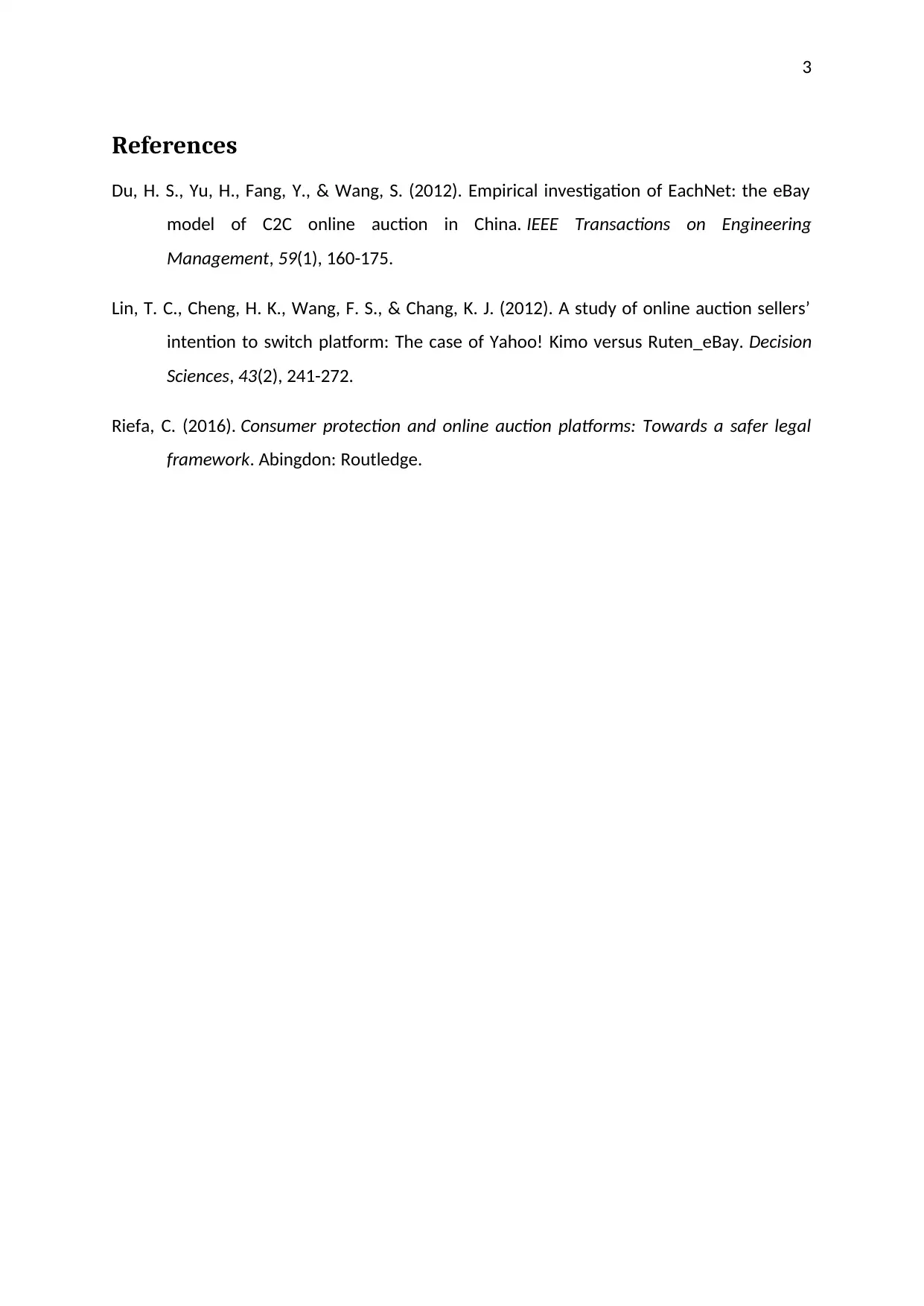Case Study: Are eBay Online Auction Bids Legally Binding Contracts?
VerifiedAdded on 2023/05/29
|4
|715
|372
Case Study
AI Summary
This case study examines the legal implications of online auction bids on eBay, addressing whether these bids constitute legally binding contracts. It delves into the mechanics of eBay's online auction process, highlighting that initial bids are generally considered counter-offers lacking acceptance and consideration. The analysis emphasizes that a contract is formed when the highest bid is made, provided there's no reserve price set by the seller. The case references the Australian NSW Supreme Court's decision in Smythe v Thomas [2007], which supports the view that eBay bids are legally binding, obligating sellers to sell to the highest bidder. The study concludes that a valid offer, acceptance, and consideration are present in eBay auctions, making them legally enforceable contracts.
1 out of 4











![[object Object]](/_next/static/media/star-bottom.7253800d.svg)